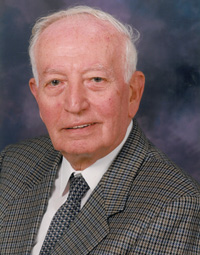
About us - History
 Mr. Anis Tabbara, founder of The Lebanese Company S.T.C.I. Tabbara, played a very important role in the Czechoslovakian milk industry. He first arrived to Czechoslovakia in 1959, with the aim of producing white cheese Akawi in brine. The first trial productions from non pasteurized milk, held in Sedlcany and Ripec were unsuccessful. The next trial productions conducted with properly treated milk in Nove Mesto na Morave, where the whole technological procedure was developed and improved, proved successful.
Mr. Anis Tabbara, founder of The Lebanese Company S.T.C.I. Tabbara, played a very important role in the Czechoslovakian milk industry. He first arrived to Czechoslovakia in 1959, with the aim of producing white cheese Akawi in brine. The first trial productions from non pasteurized milk, held in Sedlcany and Ripec were unsuccessful. The next trial productions conducted with properly treated milk in Nove Mesto na Morave, where the whole technological procedure was developed and improved, proved successful.
Production began in vats of 500 liters and rennet curd was manually cut into pieces. It was then poured into plastic patterns with four moulds each. The prepress tables with the cheese moulds and cutting system were developed and used to obtain the final form. At that time, daily production reached 600 Kgs (today, it is 6 times more). The cheese was placed in tins welded by hand and every two tins were fixed together using wooden battens.
During his first trip to Czechoslovakia in 1959, Mr. Anis Tabbara also visited Strakonice where soon after the milk powder Tatra (28% fat) began to be produced for STCI-Tabbara in five-pound tins. The initial low quantity deliveries increased over time to become a flourishing business amounting to several thousand tons per year.
Mr. Tabbara was helped at the technological level by Mr. Kalab in Nove Mesto, by technologist Mr. Eng. Havlicek, and by Mr. Foukal from Kyjov. In cooperation with the Koospol company(from which Mr. Tabbara bought the cheese) and the general management of Dairy Industry, the production of Akawi was gradually introduced in Bohemia, Moravia, and Slovakia, and the range of products was widened to include Istambuli and later Jadel cheese.
Mr. Anis Tabbara visited Czechoslovakia regularly, and he very soon became a much loved and appreciated figure with the factories of the CZ dairy industry where the cheese and milk powder for STCI-Tabbara was produced. He frequently visited the cheese factories and on numerous occasions worked alongside the employees and personally oversaw the quality control of the cheese. In the business field, he was trustworthy and often showed considerable benevolence.
At the height of the expansion, the white cheese was produced in Nove Mesto na Morave, Humpolec, Horni Plana, Broumov, Kyjov, Dvorec, Tachov, Radim-Luze, Rovensko, Domazlice, Blatna, Kyselovice, Nove Zanky and Krupina. A very Few number of the cheese factories closed down (Radim-Luze), while some other factories changed to produce other types of cheese (production of Akawi instead of Istambuli in Kyjov, and Jadel instead of Akawi in Blatna). The production of Akawi was newly introduced to Prahatice, Olosnice, Teplice. The total turnover of white cheese export reached nearly 10'000 tons in the eighties.
Mr. Anis Tabbara considerably influenced the history of the Czechoslovakian dairy production in the second half of the 20th century. He introduced the production of three new kinds of white cheese which did not require the use of caves. They were economically very advantageous and could be exported immediately after the production.
Following privatization in the early nineties, this method of production was adopted by a number of new producers. Mr. Tabbara established in Strakonice the basis for the long term production of milk powder in tins which is still running and being developed.
His numerous achievements and accomplishments in the business field and human relations was the result of his skill and professional knowledge, his immeasurable wisdom, and his unimpeachable honesty and morality.
He permanently remains engraved in the hearts of his old co-workers and friends and one can say that he already became a legend, a part of the history of Czechoslovakia's dairy industry.
Mr. Anis Tabbara passed away on 16/06/2000 at the age of 91.
Translated from the book Dairy History II, page 41-42.